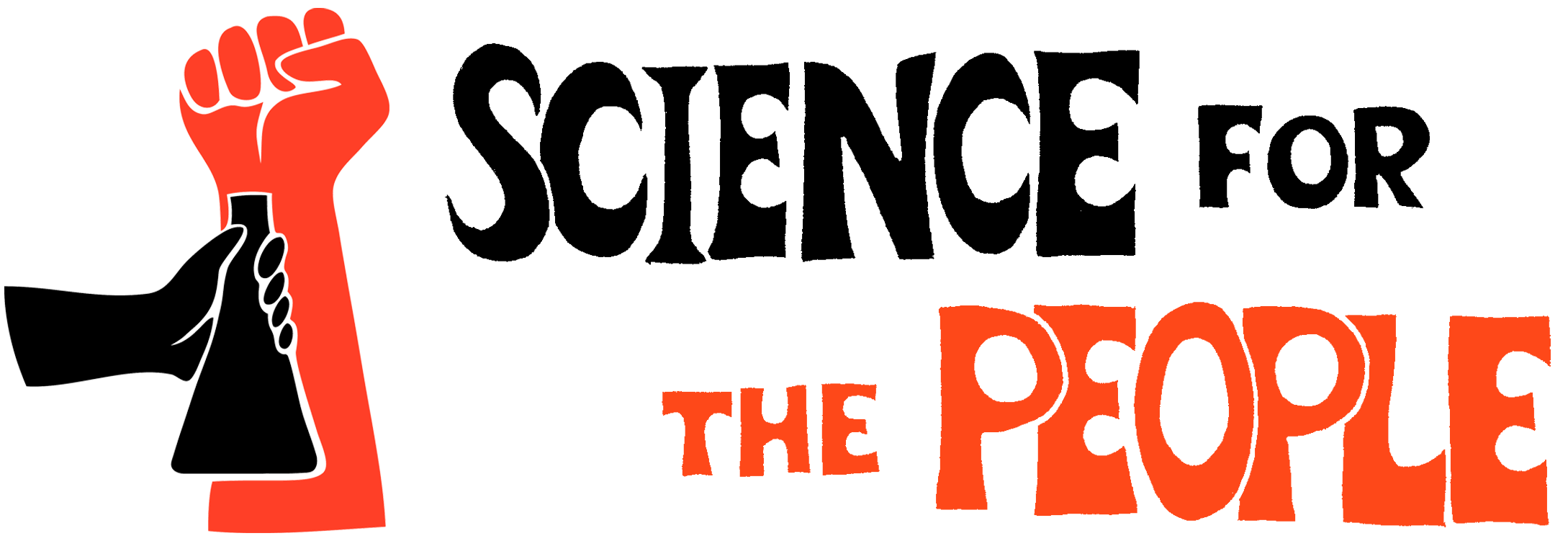Science and Social Justice:
A Workshop for Teachers of Grades K through 8
Presented by the Western Massachusetts Chapter of Science for the People
SUMMARY AND DRAFT SCHEDULE
CREDIT
1 Graduate Credit
OR
15 Professional Development Hours
AUDIENCE
Elementary and middle-school teachers in STEM, social studies, and language arts. Because a core goal is integrating different areas of learning, a diverse group will benefit all participants.
GOALS AND OUTCOMES
-
Participants will explore some of the multiple ways that self-knowledge, knowledge about society, and knowledge about the natural world are intertwined.
-
Participants will deepen their understanding of the ways social, political, economic, and/or cultural contexts shape the development of STEM knowledge.
-
Participants will explore new ways to think critically about the concept of scientific “objectivity” and will contrast it with concepts of social responsibility and science as a public good.
-
Participants will explore new ways to help students develop awareness of their values and capacities, and how to help them to become leaders in ways that promote individual and collective wellbeing.
-
Participants will encounter a wide range of concrete examples in which the above concepts may be applied, resulting in the integration of STEM, social studies, language arts, and/or civic engagement curricula.
-
Participants will have the opportunity to use the ideas and examples they have encountered to design curricula for their own classrooms. This may involve the creation of an entirely new curriculum unit or the elaboration of an existing unit to more effectively weave together STEM, social studies, language arts, and/or civic engagement.
ASSESSMENT
Participants seeking graduate credit and/or professional development points will be required to:
-
Submit a draft curriculum unit that integrates STEM; social studies and/or language arts; and engagement with questions of social, economic, and/or environmental justice. Their submission will be in the form of a completed “Backwards Design Template for Unit Planning” (see attached); if their school uses a different template, they may use that instead.
-
On the second day of the workshop, deliver a brief presentation of their proposed curriculum unit, along with an explanation of how it relates to the ideas discussed during the workshop.
Professors Brian Schultz (Professor of Ecology, UMass) and Sigrid Schmalzer (Professor of History, UMass) will be the instructors of record for the graduate course and will supervise the assessment of the submitted work.
DRAFT SCHEDULE
The workshop will take place over two Saturdays. Each day will consist of 7.5 hours, for a total of 15 contact hours.
DAY ONE
8:00 – 8:30 Introductions
8:30 – 9:15 Topic 1: Weaving Environmental Justice into the Science Curriculum (Judy Dow)
Presenter will share units and activities in which elementary and middle-school students have engaged in environmental science research to support social justice initiatives. Through participation and discussion participants will come to a deeper understanding of the ways in which such activities and lessons can be built into their own units of study.
9:15 – 10:00 Topic 2: Community Knowledge-Making (Tatiana Cheeks and Sigrid Schmalzer)
Participants will hear from community members working to change policy related to mold in Massachusetts housing. Participants will discuss the relationship between a person’s social experience and the knowledge they possess, and will explore the diverse ways in which scientists and members of our own communities contribute expertise that leads to robust knowledge on issues of local concern.
10:00 – 10:15 Break
10:15 – 11:00 Topic 3: Bringing in Diverse Voices (Emma Harnisch and Tavar Jones)
Workshop leaders will present innovative strategies for incorporating diverse voices from art and literature into science curricula, with a special emphasis on connecting to social justice struggles. Participants will have an opportunity to explore art and literature resources that bring diverse voices to a wide range of science topics.
11:00 – 11:45 Topic 4: Rethinking the Aim of Science and its Implications for the Classroom (Michael Ben-Chaim)
Workshop leader will show how the concept of a scientist’s moral responsibility can transform even the most basic science lessons, making the knowledge more meaningful for students and their communities. Through discussion and sample activities, participants will explore ways to incorporate the concept of scientists’ moral responsibility into science units.
11:45 – 12:30 Working Lunch
Participants will view and discuss a short film while they eat.
12:30 – 1:30 Planning Units on Science and Social Justice
Workshop leaders will introduce resources, show how curriculum units can connect to Next Generation Science Standards, and lead a collective brainstorming discussion in preparation for the teacher work-time.
1:30 – 3:30 Teacher Work-Time
Workshop leaders will circulate among the participants as they begin using what they have learned to plan a Science and Social Justice curriculum unit suitable for their own classrooms.
DAY TWO
8:00 – 8:30 Introductions and Check-Ins
8:30 – 9:45 Session 5: Trauma-Informed Somatic Practices to Link Self-Knowledge and World Knowledge (Andrea Bordenca)
Participants will explore the connections among science, self-knowledge, and social action; participants will learn and practice somatic techniques for building confidence and leadership skills in students, including those with histories of trauma.
9:45 – 10:00 Break
10:00 – 11:45 Teacher Presentations
Participants will present the Science and Social Justice curriculum units they have drafted.
11:45 – 12:30 Working Lunch
Participants will view and discuss a short film while they eat.
12:30 – 2:15 Teacher Presentations, Continued
Participants will present the Science and Social Justice curriculum units they have drafted.
2:15 – 2:30 Break
2:30 – 3:30 Wrap-Up Discussion
Participants will discuss obstacles, resources, and next steps.
